Discover How a Citizen Science Network is Shaping Knowledge on Cameroon and Africa’s Marine Species
One of Cameroon’s leading marine conservationists is revolutionising marine conservation in Cameroon and Africa with a simple mobile application that empowers local communities to take the lead in conservation efforts.
In 2023, the Mobula hypostoma, otherwise known as the Atlantic pygmy devil ray, was spotted in a coastal community in Cameroon, thanks to a fisherman who used the Siren Application to document the observation—SIREN is a citizen science platform initiated by Dr Kamla Aristide, a prominent Cameroonian marine biologist and conservationist.
The Siren App empowers local fishers to collect and record marine mammal sightings, capturing essential details such as date, time, GPS location, species name, habitat, behaviour, and weather conditions. Data is stored locally on their phones, uploaded to a server when internet connectivity is available, and displayed on an interactive web map for easy access.
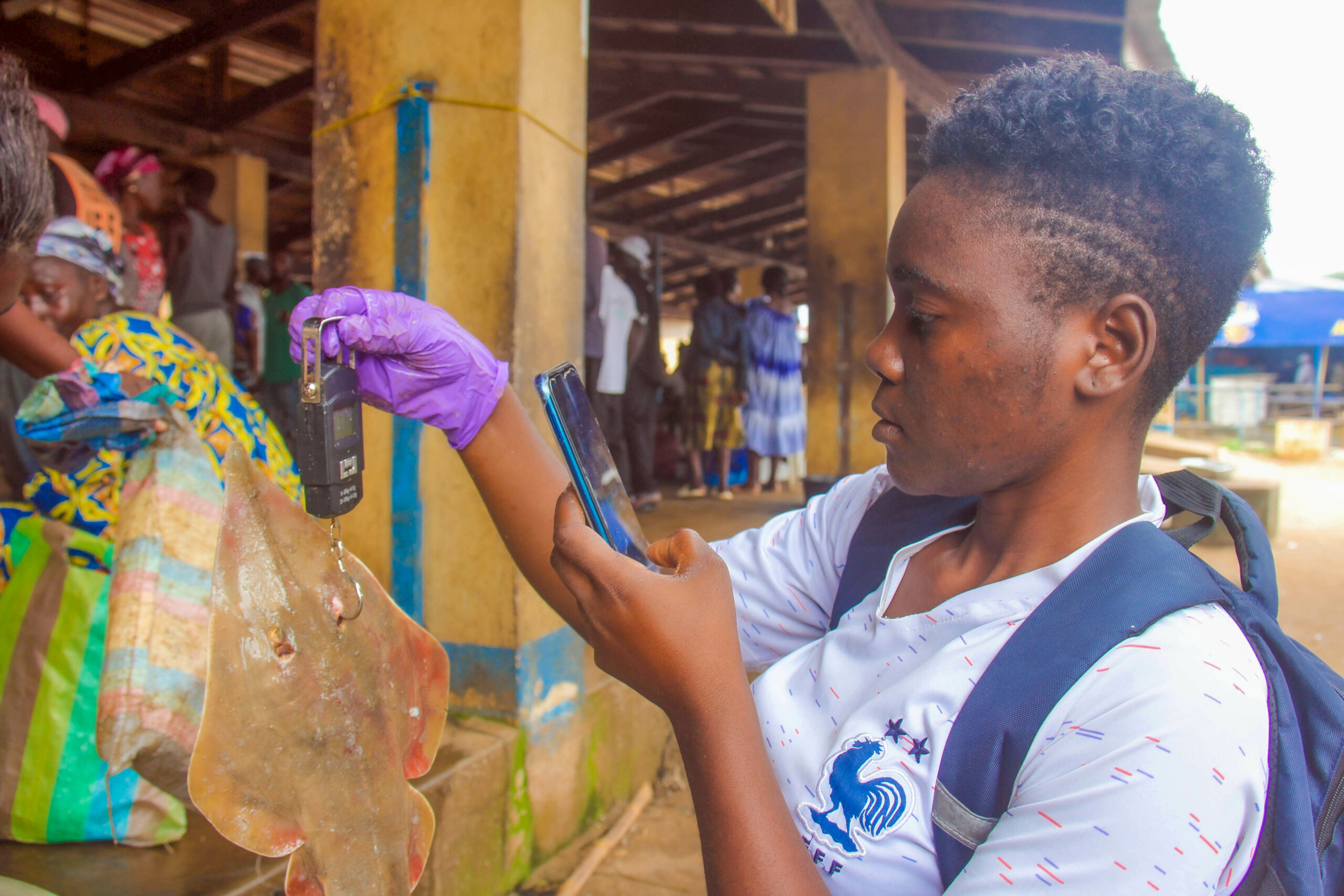
One of Aristide’s collaborators uses the SIREN App to collect data. Photo © Aristide
This remarkable sighting of the Atlantic pygmy devil ray, which hasn’t been seen in Cameroon’s waters for over 60 years, is just one of many discoveries facilitated by the Siren App across Cameroon and other African countries. This endangered species has experienced a decline of 50-79% over three generations.
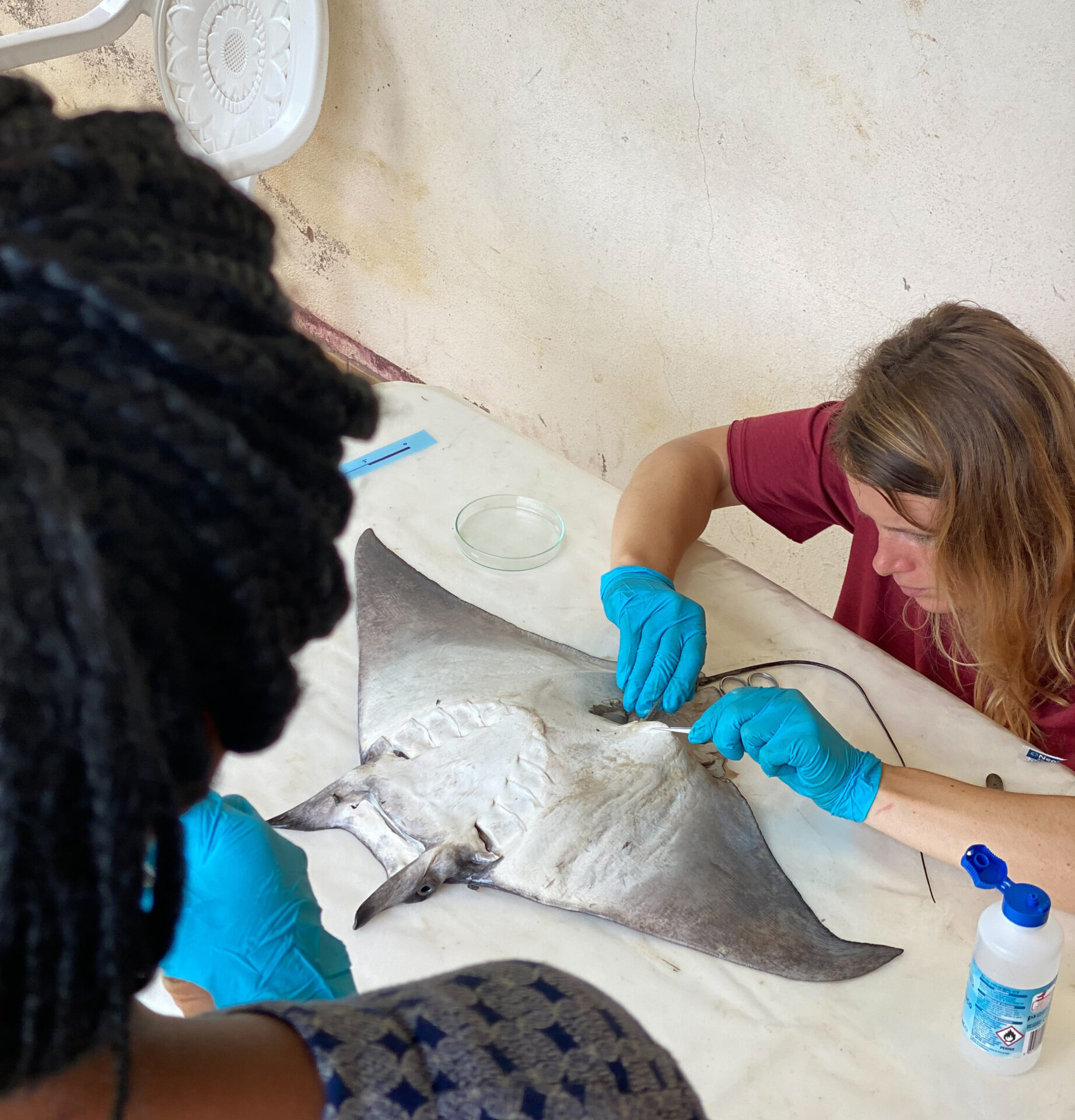
Genetic samples of the Atlantic pygmy devil ray taken for examination. Photo © Aristide
Before launching the citizen science platform in 2015, Dr. Kamla Aristide, founder of the African Marine Mammal Organisation (AMMCO) based in Cameroon, had a transformative experience that profoundly shaped his conservation journey. After a fruitless three-month search for the African manatee in Cameroon’s Lake Ossa, his breakthrough came through a local fisher who has mastered the lake and knew exactly where the manatees could be sighted. “I was about to give up until I met this fisherman who guided me to observe my first African manatee,” Aristide shared during the Nat Geo Explorers Festival.
This experience led Aristide to prioritise local involvement in conservation efforts. “The Siren App now has a network of about 80 fishermen deployed along Cameroon’s coastline,” he explains. These fishers have collected vital data that has aided him in making critical conservation decisions. “They have made over 20,000 observations, significantly enhancing our conservation work,” he reveals.
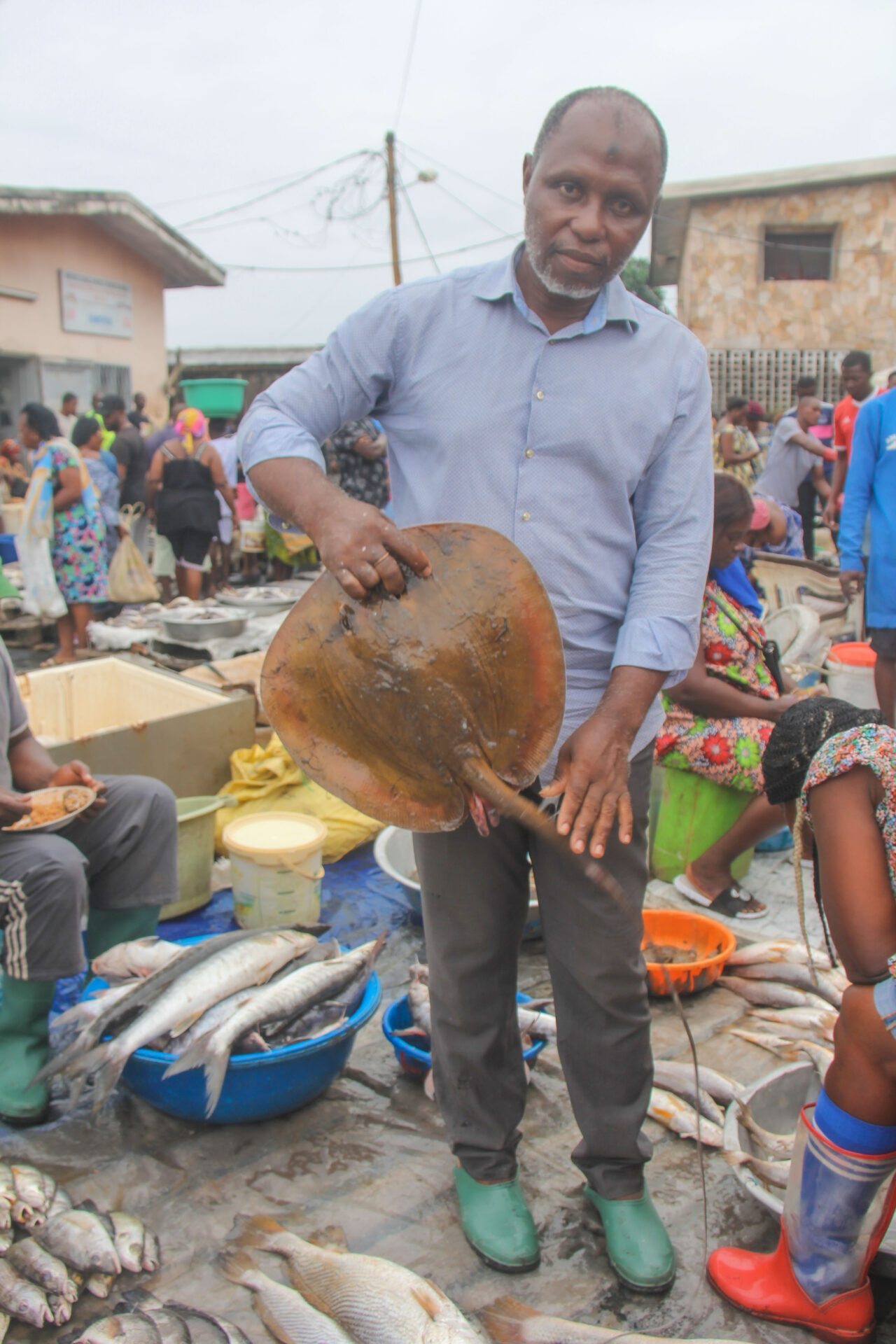
One of the fishermen in the SIREN Network holds a threatened elasmobranch species that he has been trained to identify. Photo © Aristide
In an interview with the French Facility for Global Environment, Aristide noted that “sharks and rays are the most endangered large marine species in Cameroon.” He emphasises that without the data collected, he would not have been able to identify these critical issues.
The Siren App is not only making waves in Cameroon, “The Siren App is now active in several African countries,” Aristide, who is also the 2024 winner of the Whitley Award for Nature adds. These include Ghana, Gabon, São Tomé and Príncipe, the Republic of Congo, and Guinea-Bissau. In Ghana, for instance, the Keta Ramsar Center, a local conservation organisation utilises the app to conserve turtles by gathering vital data on nesting sites, protecting them from poachers. In July 2024, they successfully released around 300 olive ridley hatchlings that would have otherwise been poached.
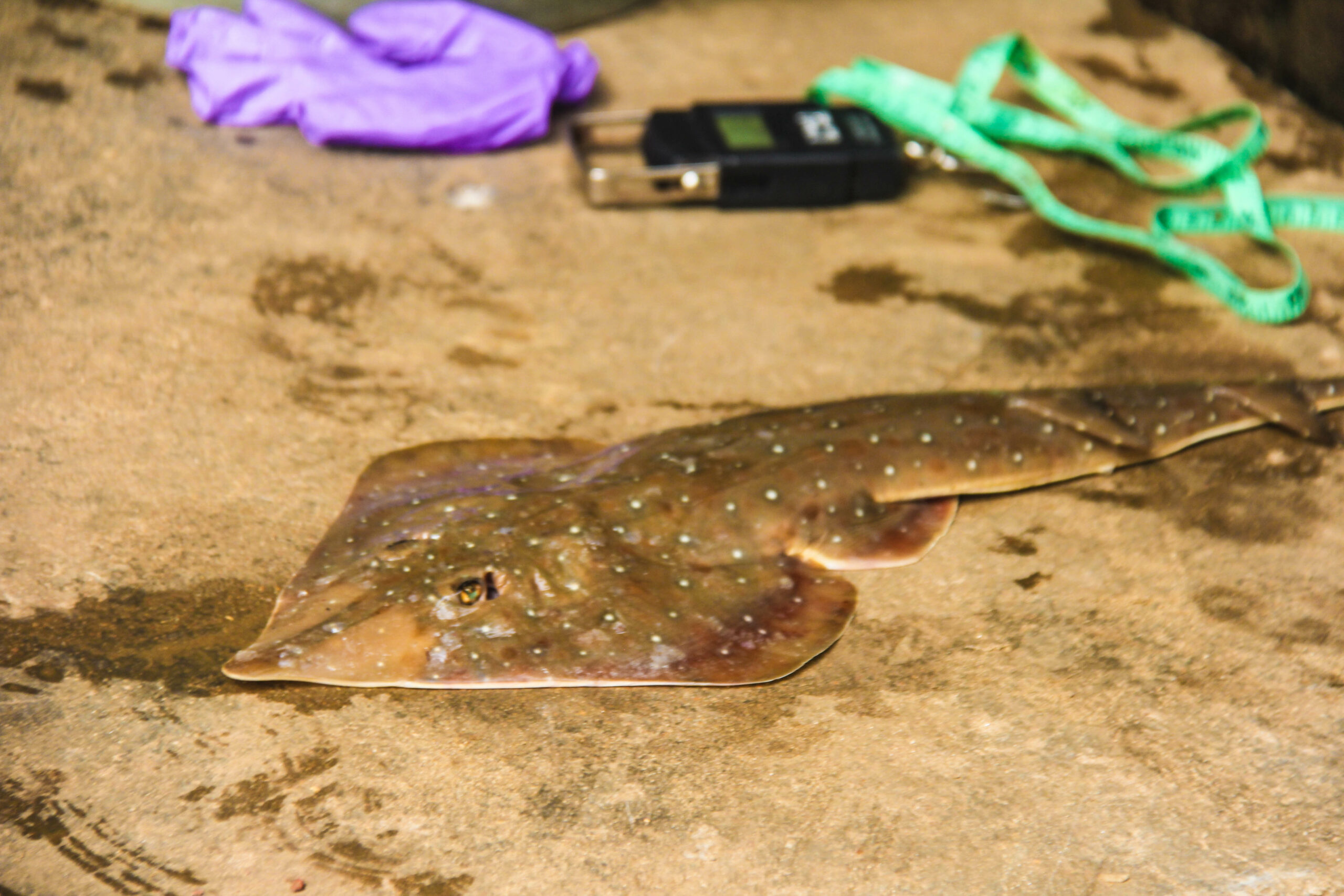
Photo © Aristide
Through the Siren App, Aristide and his team have established the first catalogue of sharks and rays in Cameroon, identifying over 45 species. Importantly, the data collected has enabled Aristide to advocate for the legal protection of four marine mammal species, including the critically endangered Atlantic humpback dolphin, which has not been seen in Cameroon for over a decade.
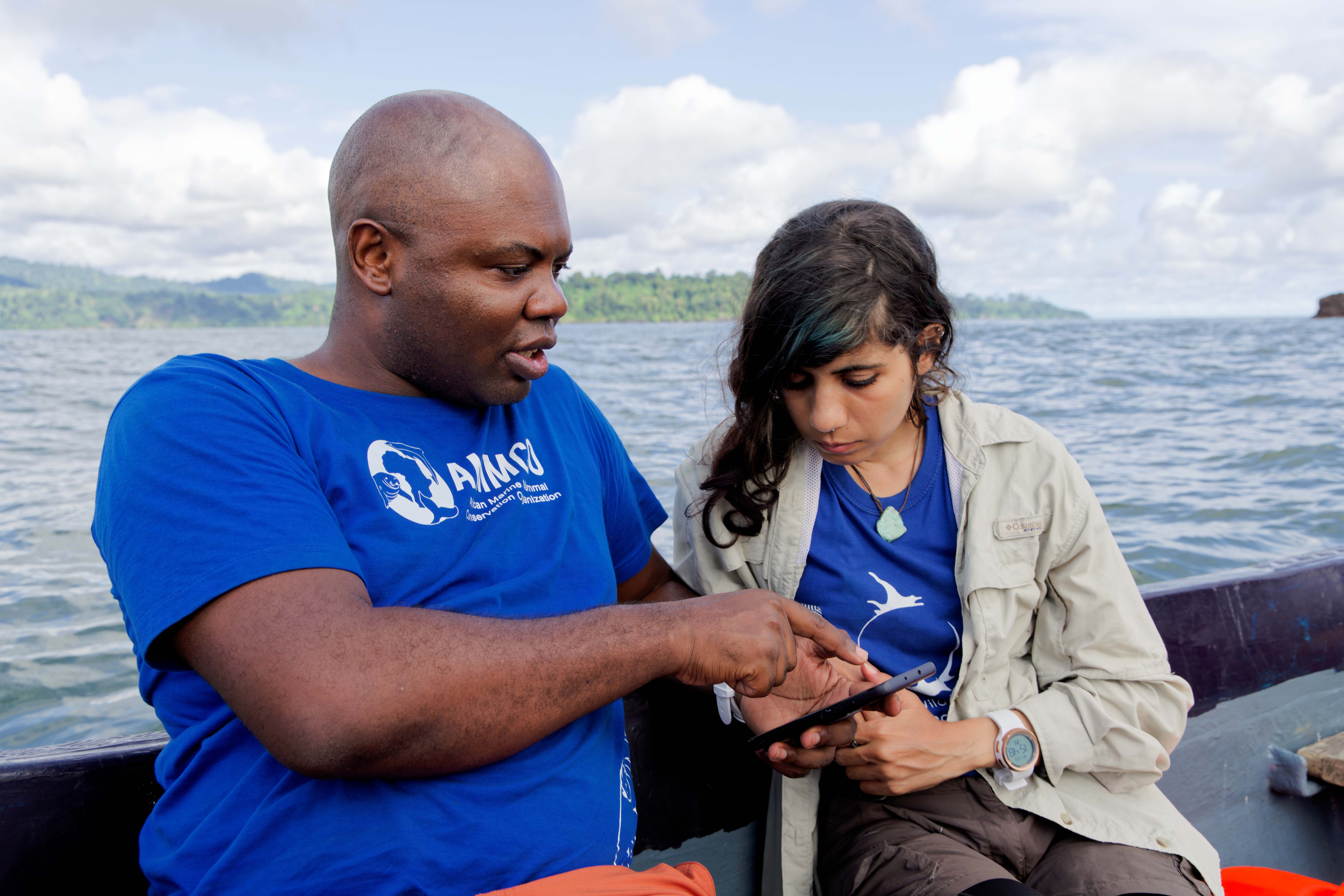
Aristide (left), training one of his collaborators on how to use the Siren App. Photo © Aristide
Beyond the data, Aristide has witnessed a transformation among fishermen who were once poachers. He recounts the story of Papa Mensa, a former serial poacher of sea turtles, who joined the Siren network early on. “Papa Mensa has since saved over 40 sea turtles and 500 sea turtle eggs,” Aristide notes, highlighting the shift in mindset among local fishers towards marine conservation.
Through these efforts, Aristide is not only turning the tide of marine conservation in Cameroon but also inspiring a new generation of advocates for the protection of marine life across Africa.
